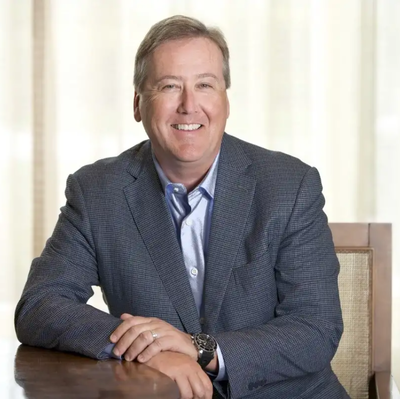Mike Lamach recently ended a 12-year run as CEO of Trane Technologies. He retired in 2021 from Trane, but not from community work.
The Charlotte Business Journal spoke with Lamach to glean insight on a prominent but little-seen group: the Charlotte Executive Leadership Council, or CELC. The council consists of a 38-person board, comprised of executives from the area’s largest local employers, a handful of smaller companies and college and university leaders. Lamach became council chair in 2021.
The CELC has one staffer, Blair Stanford, who is housed at the Foundation For The Carolinas but paid by the council.
Technically, the council isn’t an organization, but a fund managed by the foundation. The group doesn’t disclose its finances, though its membership allows for fast commitments, whether they be financial or something else, such as donated time or building interest and support for a cause.
“That’s worked,” Lamach said of the structure. “We’ve been able to decide quickly on what to do.”
Formed in 2015, the council has become a go-to for drumming up corporate support for Charlotte’s never-ending series of public-private campaigns and partnerships. Foundation For The Carolinas provided funding to study how best to create a civically minded roundtable while The Lee Institute conducted the study that shaped how the council is run.
And, while members of the council are familiar faces — Bank of America Corp. CEO Brian Moynihan and Duke Energy Corp. CEO Lynn Good preceded Lamach as chair — how the CELC does its work is decidedly under the radar.
Meetings are not open to the public (nor are they required to be). The full council meets six times a year in person while the executive committee meets monthly. There are typically 100 people involved in tracking progress and engineering various aspects of involvement in workforce development, education, health and other support services, and community engagement. Those 100 people include the 38 board members plus colleagues from their companies brought in to help on projects.
The expertise and available man-hours made possible by major employers provide nonprofits and local government agencies with much-needed help at little or no cost, Lamach said.
“It’s not a situation where we’re going in and telling folks what to do,” he added. “We’re asking the question: What do you need? How can we help?”
A good example, Lamach said, is the executive loan program started with Charlotte-Mecklenburg Schools in response to disappointing reading scores and continuing academic achievement disparities between white students and minorities.
There are 11 executives from CELC member companies working on loan at CMS — not as educators or to set educational policy but to help with related problems that private-sector expertise can help solve. Lamach mentioned information systems, human resources systems, and security and safety systems as examples.
During a 30-minute interview, Lamach explained how CELC’s emphasis on economic mobility dovetails with complementary efforts by various board members and their companies as well as local government and nonprofit groups.
And, he said, the motivation is simple.
“We really want to see Charlotte as a top-tier city for economic mobility,” Lamach said. “Ultimately, it’s around creating vibrancy in the city that attracts, retains and develops the workforce we need for the future.”
In addition to the CMS executive program, the CELC has taken on active roles with the Mayor’s Racial Equity Initiative, a $250 million public-private fundraising campaign that aims to achieve specific goals such as drawing private investment in neglected neighborhoods, bridging the digital divide and helping Johnson C. Smith University elevate its academic programs with an emphasis on career-readiness.
Lamach cited the efforts at JCSU, the city’s only historically Black college and university, as an example of how the council views its role as more than just raising money.
He pointed out that beyond the role played by various companies and donors to raise $80 million for JCSU, council members including Lamach, EY executive Malcomb Coley and BofA’s Kieth Cockrell have all become school trustees in recent months. (Coley and Lamach are also co-chairs of the racial equity initiative.)
Being able to learn about and help shape the steps taken to improve mobility have convinced Lamach and the council that they can make a difference.
“It’s an easy yes because I can see the value in the community, I see the impact,” he added. “It’s motivating.”
Lamach plans to move to the council alumni group after his term as chair ends. He’ll be succeeded next year by Atrium Health CEO Gene Woods.
Read the full article in the Charlotte Business Journal to learn more about Lamach and his road to leadership.
Copyright: Charlotte Business Journal; Photo Courtesy: Charlotte Executive Leadership Council


